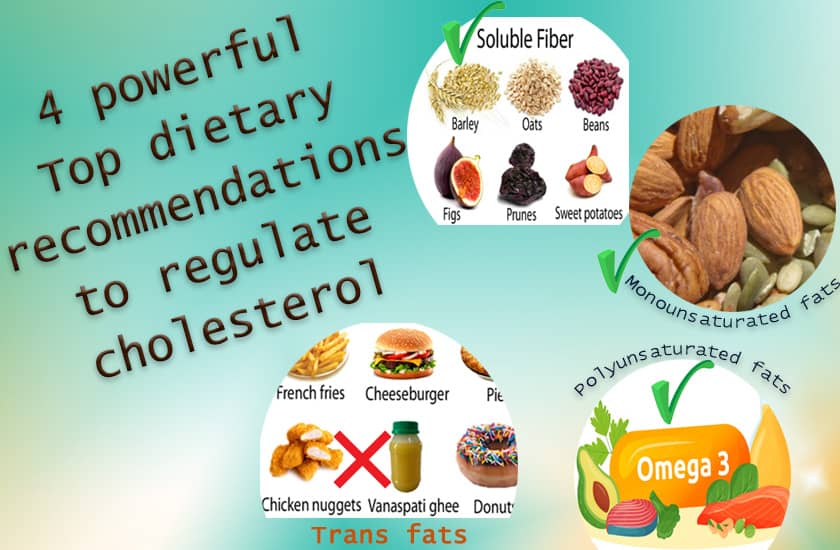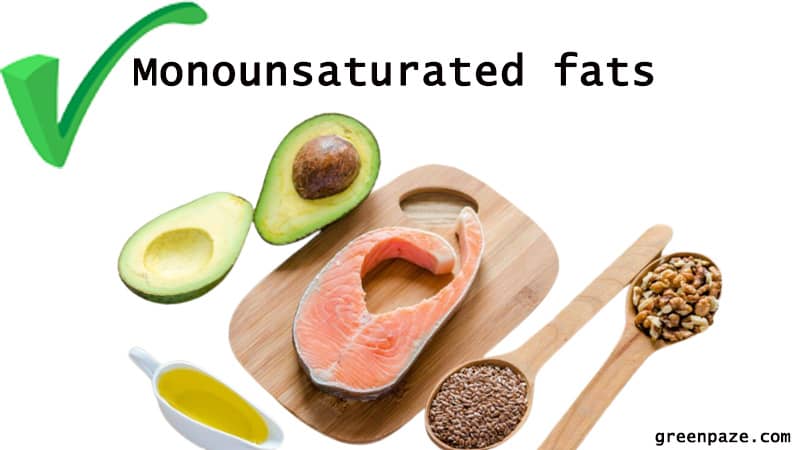Foods To Lower Cholesterol Fast
Learn how to lower cholesterol quickly, without complications and without medication. One of our dietary recommendations to regulate cholesterol is that you consume a high amount of fiber every day.
Has your doctor said that you have high cholesterol levels? In that case, he may have given you some medications and recommendations to control it. Increase your improvement with the following dietary recommendations to regulate cholesterol.
You will realize that they are practical and very quick tips and the best thing is that they are easy to incorporate and will not force you to spend more. Are you ready? Take note and put them into practice today.
What is cholesterol?
Before presenting the dietary recommendations to regulate cholesterol, you should know that it is produced by the liver. The cells of our body receive the correct amount of nutrients through the cholesterol.
The problem comes to the light when those fats you eat are of poor quality and in this case, the lipid profile is affected and the level of LDL lipoprotein oxidation will be higher. This can negatively affect health, according to an article published in the BMJ magazine.
Dietary Recommendations to Regulate Cholesterol
1. Eat Monounsaturated Fats
It is believed that when you have high cholesterol you have to stop eating all kinds of fats. Actually, poor lipids that contain red meats are harmful for health and one of the dietary recommendations to regulate cholesterol is to consume healthy lipids.
Monounsaturated fats increase the amount of HDL cholesterol. This is the good cholesterol that we all need in high amounts.
Among the foods that provide this type of lipids are: olive oil, nuts, canola oil, olives, coconut oil, almonds, eggs and avocado.
So, try to include one of these fats at all times that is breakfast, lunch and dinner. When you are buying them, it is important to choose the best quality ones so that the results are optimal.
Just remember to watch your portions as you can easily go overboard with calories. One thing you should never do is mix two natural fats together unless you have good portion control.
For instance, if you add nuts to your salad, avoid dressing with oil. Instead, spice it up with a vinaigrette or similar dressing.
2. Add Polyunsaturated Fats, Especially Omega-3
Worldwide doctors and dietitians are recommended to regulate cholesterol is to consume enough omega-3. Like monounsaturated fats, omega-3s lower the amount of LDL cholesterol, according to a study published in 2016.
One study found that people who switched from regular fats to omega-3s reduced:
💢 LDL cholesterol
💢 Insulin resistance
💢 The risk of type 2 diabetes
The best foods to obtain this type of fat are: salmon, tuna, nuts and shrimp.
In addition, a good way to know that you are consuming enough omega-3 is to add a serving of oily fish to your diet twice a week. Now, while salmon is well known for its omega-3s, you don't have to eat it.
In addition to salmon, you can consume fresh natural tuna, not canned. Salmon and tuna are very healthy food source and rich of omega-3 fatty acids.
3. Avoid Trans Fats at all Costs
Avoid trans fats as much as possible, that will help to regulate cholesterol. These are usually present in foods that have been highly processed, such as commercial margarines, cakes and breads.
Usually, trans fats are one of the most used elements in the food industry because they have greater resistance to ambient temperature. In addition, they provide better texture.
Despite these benefits, trans fats affect your heart health and lower the amount of HDL cholesterol.
Therefore, when you are buying processed, ready-to-eat or frozen foods, check the label. In ideally, you should avoid those that say something along the lines of "partially hydrogenated."
4. Eat Enough Soluble Fiber
Soluble fiber is a compound present in vegetables that is difficult to dissolve in water and is not digested by the stomach. This means that it reaches the digestive tract practically complete and forces them to work.
Moreover, it is a vital component for the correct reproduction of beneficial intestinal bacteria that is probiotics and when your body has the right number of probiotics, negative cholesterol level drops dramatically.
Diet Can Influence the Lipid Profile
When it comes to modulating the lipid profile, it is necessary to modify a series of habits. A varied and balanced diet, along with regular physical activity, significantly reduces cardiovascular risk.
Always eat mono and polyunsaturated lipids and reducing the consumption of those of the trans type lipids that will improve your HDL lipoprotein levels. It will also help reduce the oxidation rate of LDL cholesterol; a parameter related to cardiovascular risk.
You may be interested in reading: 11 Foods That You Must Take for Good Health













0 Comments